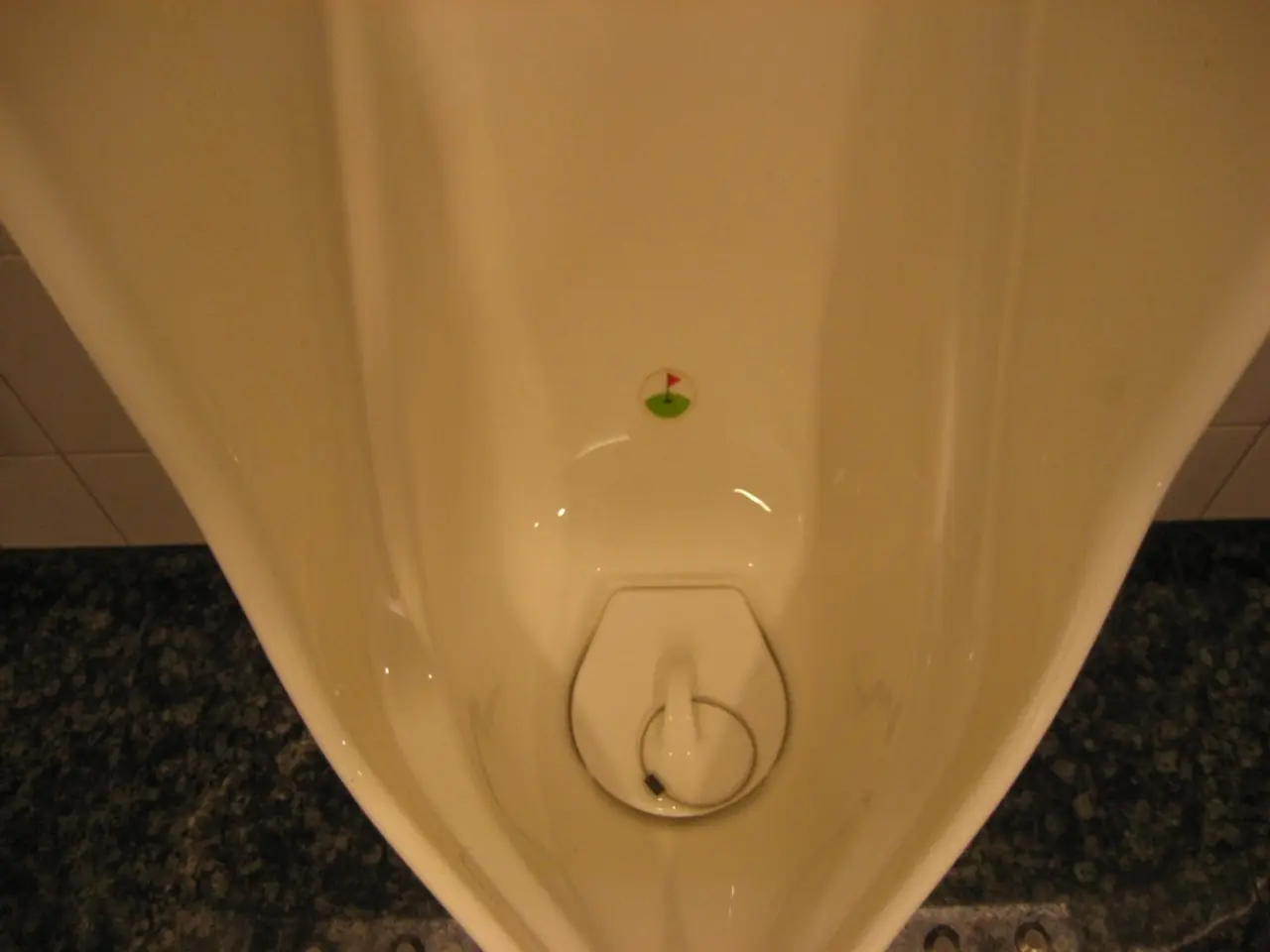Impact of Prostate-Less Sexual Experiences on Libido, Pleasure, and Other Aspects
Prostate removal surgery, also known as a prostatectomy, can have an impact on a person's sexual function. It's essential to be aware of the potential changes and take necessary precautions to ensure a smooth recovery.
After undergoing a prostatectomy, most medical professionals advise waiting approximately 4 to 6 weeks before resuming sexual activity. However, the exact timing can vary depending on individual healing and the doctor's clearance. Recovery of sexual function can be a gradual process, taking several months up to 1–2 years, particularly if nerves were affected during surgery [1][3][5].
Here are some key points to consider when resuming sexual activity and easing back into intimacy:
- Initial healing period: It's crucial to avoid sexual activity during the initial healing period to allow tissues to heal and reduce the risk of complications [2].
- Penile rehabilitation: Beginning attempts at achieving erections as soon as it's medically safe—often several weeks after surgery—is recommended to promote recovery. This might involve using medications such as PDE5 inhibitors (e.g., sildenafil, tadalafil) that increase blood flow [1].
- Use of aids: Vacuum erection devices can help create erections by drawing blood into the penis, supporting tissue health during recovery [1][5].
- Open communication: Regularly discuss progress and concerns with your urologist to receive personalized guidance and treatment adjustments [4].
- Emotional and relationship support: Addressing psychological effects, anxiety, or relationship stress through counseling can ease the transition back into intimacy [3].
- Patience and realistic expectations: Some men experience sexual function improvement progressively over months or even years; not rushing and gradually rebuilding intimacy helps [4].
- Partner involvement: Open dialogue with your partner about physical changes and preferences supports satisfaction for both [2].
It's important to note that erectile dysfunction rates after prostate removal can be as high as 85%, depending on the surgical procedure [6]. Some people may not be able to experience orgasms or may experience less intense orgasms after prostate removal. People may want to consider storing sperm before prostate removal for potential use in fertility treatments, as a prostatectomy prevents ejaculation [7].
People must follow the advice of their surgeon as to when they can safely have sex after prostate removal. After a radical prostatectomy, a person will need to wait until the wound is healed and feels comfortable before having sex [8]. After the prostatectomy, a person will no longer be able to get a partner pregnant through sexual intercourse, as the vas deferens is removed [9].
Treatments for erectile dysfunction after prostate removal include medications like Viagra, Cialis, Levitra, or Stendra, penile injections, penis pumps, and penile implants [10]. Penile rehabilitation can help recover erectile function after prostate removal [11].
Communicating with a partner about sexual concerns is important and can involve honest discussion, active listening, sex therapy, and attending medical appointments together [12]. The ability to have an erection after prostate surgery can vary for each person, and may not be possible in the first few months after surgery [13].
If the person had keyhole surgery, they can be sexually active after removing the catheter, but should wait about 6 weeks before having anal sex [14]. The charity Prostate Cancer UK offers tips for easing back into sexual intimacy after prostate removal, including developing intimacy through physical contact, seeking support if feeling down or anxious, and trying nonpenetrative sex [15].
Sexual difficulties after prostate removal can negatively affect a person's self-perception, intimate relationships, and mental health, and may require help from a healthcare professional or support group [16].
In summary, while sexual activity can generally be resumed about 1 to 1.5 months after prostate removal, full erectile function recovery varies widely and may require ongoing rehabilitation using medications, devices, and emotional support [1][2][3][5].
- The surgery known as a prostatectomy, or prostate removal, can impact a man's sexual function, which highlights the need for awareness and precautions during recovery.
- Most medical professionals suggest waiting around 4 to 6 weeks before resuming sexual activity after a prostatectomy, but the exact timing may differ based on individual healing and the doctor's guidance.
- Sexual function recovery following a prostatectomy may be a gradual process, potentially taking several months to 1–2 years, especially if nerves were affected during surgery.
- Throughout recovery, open communication with your urologist is essential to receive tailored suggestions for overcoming barriers, and addressing psychological effects, anxiety, or relationship stress.
- Emotional and relationship support, including counseling, helps to ease the transition back into intimacy.
- Be patient and set realistic expectations; some men might observe improvements in sexual function progressively over a prolonged period of time.
- Incorporating partner involvement and honest dialogue about physical changes and preferences improves satisfaction for both individuals.
- It's important to note that erectile dysfunction rates after prostate removal can be substantial, and some people may experience less intense orgasms or may not be able to experience orgasms at all.
- The recovery process may involve various therapies and treatments, such as medications, penile rehabilitation, and devices like vacuum erection devices or implants.
- Sexual difficulties can negatively impact a man's self-perception, intimate relationships, and mental health, emphasizing the importance of discussing concerns with a healthcare professional or support group.
- Prostate Cancer UK, a charity, offers resources for resuming intimacy after prostate removal, like developing physical closeness, seeking support when needed, and exploring nonpenetrative sexual activities.
- If a person undergoes keyhole surgery, they can remove their catheter and be sexually active, but they should wait about 6 weeks before engaging in anal sex.
- People must adhere to the advice of their surgeon regarding when they are able to safely engage in sexual activity after prostate removal.
- Women's Health and Wellness, Sexual Health, and Mental Health, among other factors, are significant aspects of Men's Health, and addressing challenges may call for a comprehensive approach involving medical treatments, support groups, and therapies.




